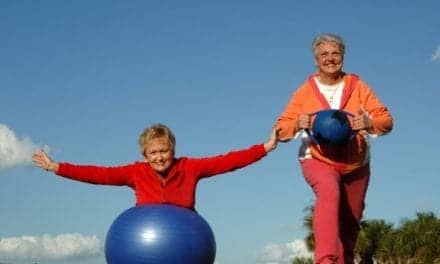More seniors are receiving caregiver assistance from family, friends, and hired helpers to “age in place” in their homes, despite disabilities that keep them from total independence, according to a recent study.
The study from the University of Michigan Health System, published recently in JAMA, included nearly 5,200 people 55 or older who lived at home and had at least one disabling condition, and took part in the Health and Retirement Study, a long-term study run by the U-M Institute for Social Research. Each was interviewed at home or by telephone several times over the course of the study, according to a media release from the University of Michigan Health System.
Among the participants, 50% received some form of in-home help in 2012. That’s up nearly 20%, or 8 percentage points, since the study began in 1998.
The sharpest rise, according to the study, is among seniors who had milder disabilities, suggesting that they may have been trying to “age in place” and avoid entering a nursing home.
Caregiving is essential for keeping people at home and out of nursing homes. But we were surprised by the size of the increase from 1998 to 2012,” says Claire Ankuda, MD, MPH, the study’s lead author and a Robert Wood Johnson Clinical Scholar at U-M’s Institute for Healthcare Policy and Innovation, in the release.
“As we see more of an emphasis by seniors on staying in their homes, and valuing their independence, and as the size of the senior population grows, we need to be thinking as a society about potential ways to help caregivers, and ease the strain it can cause,” she adds.
Over the study period, differences among the recipients of care emerged, according to the researchers: seniors with educations beyond high school and above-average net worth saw greater increases in paid caregiving compared with people with less education and less wealth; there was a trend toward aging in place even among those who might be more likely to afford a nursing home; and about two-thirds of men and 45% of women had no caregiving help at all.
In addition, the study suggests a rise in the percentage of seniors who reported that they received caregiver help from spouses, adult children, and other family members.
Paid caregiving saw the largest rise among the senior recipients, and help from friends remained flat, per the study.
Continuing work from Ankuda and senior author Deborah A. Levine, MD, MPH, an assistant professor of internal medicine, are continuing their work with this study, is focusing on caregiver strain.
“Caregivers are critical to maintaining the health and well-being of disabled older adults yet are largely unrecognized in our care systems,” Levine says in the release. “Although caregiving can have benefits, it can also have serious risks for the caregiver including depression and worse health. So supporting caregivers is critical to maintain their health and well-being as well.”
[Source(s): University of Michigan Health System, Science Daily]





